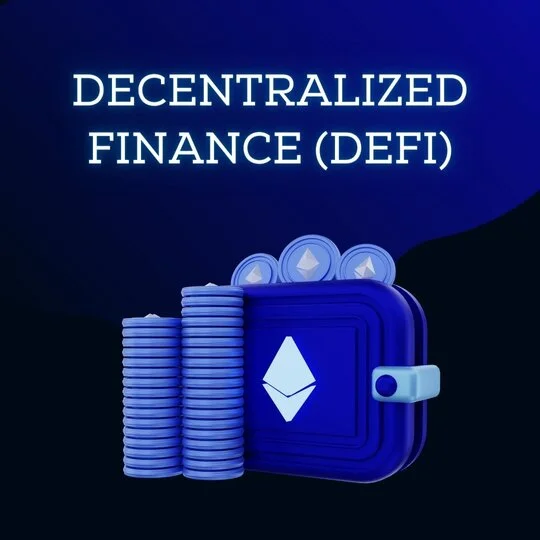What is Decentralized Finance (DeFi)?
Decentralized finance (DeFi) refers to a new and rapidly growing sector of the cryptocurrency and blockchain industry that offers financial services without the need for centralized intermediaries, such as banks and traditional financial institutions.
DeFi is built on public blockchain networks, such as Ethereum, and is powered by smart contracts and decentralized applications (dApps). Read on to know more in detail to have an overall Trade Bitcoin!
The Emergence of DeFi
The DeFi sector has grown significantly over the past few years, driven by the rising demand for financial services that are transparent, secure, and accessible to everyone, regardless of their location or financial status.

In 2020, the DeFi sector saw explosive growth, with the total value locked in DeFi protocols increasing from just $1 billion to over $20 billion in just a few months.
The growth of DeFi has attracted the attention of traditional financial institutions, investors, and regulators, who are now exploring the potential of this new and exciting sector.
Benefits of DeFi over Traditional Finance
Accessibility
One of the key benefits of DeFi is its accessibility. DeFi eliminates the need for centralized intermediaries, which often impose strict requirements and restrictions on their customers, such as minimum deposits and credit checks.
With DeFi, anyone with an internet connection and a smartphone can access a range of financial services, regardless of their location or financial status.
Transparency
Another key benefit of DeFi is its transparency. DeFi operates on public blockchain networks, which provide a transparent and auditable record of all transactions.
This transparency enhances the security of DeFi and helps to prevent fraud and other types of financial crime.
Faster
Furthermore, DeFi is much faster and more efficient than traditional finance. Transactions on DeFi platforms are processed in near-real-time, compared to the slow and often cumbersome processes of traditional financial institutions.
Eliminates intermediaries
DeFi also eliminates the need for intermediaries, which can reduce the cost and complexity of financial transactions.
DeFi Applications:
Lending and Borrowing
Lending and borrowing are one of the most popular DeFi applications, offering a range of benefits over traditional lending and borrowing platforms.
DeFi lending and borrowing platforms allow users to lend and borrow cryptocurrencies and other assets, such as stablecoins, in a decentralized and secure environment.
Decentralized Exchanges (DEXs)
Another popular DeFi application is decentralized exchanges (DEXs), which allow users to trade cryptocurrencies and other assets in a decentralized and secure environment.
Unlike centralized exchanges, which are controlled by a single entity, DEXs are powered by smart contracts and are decentralized, providing users with greater security and control over their assets.
Stablecoins
Stablecoins are another important DeFi application, offering a stable and secure alternative to traditional fiat currencies.
Stablecoins are pegged to the value of a specific asset, such as the US dollar, and are designed to minimize price volatility.
This makes them ideal for use in DeFi, as they provide users with a stable store of value and can be used to pay for goods and services, trade on decentralized exchanges, and participate in other DeFi applications.
The Future of DeFi:
The Potential to Transform Traditional Finance
The growth of DeFi has the potential to completely transform traditional finance and the financial services industry.
By offering transparent, secure, and accessible financial services, DeFi has the potential to disrupt traditional financial intermediaries and challenge their monopoly on financial services.
This could lead to greater competition, lower costs and more innovation in the financial services sector.
Conclusion:
In conclusion, DeFi has emerged as a significant force in the cryptocurrency and blockchain industry, offering a range of benefits over traditional finance.
With its accessibility, transparency, and efficiency, DeFi has the potential to transform the financial services industry and challenge the monopoly of traditional financial intermediaries.
As DeFi continues to grow and mature, it will be interesting to see how it evolves and the impact it has on traditional finance.
Whether DeFi will eventually replace traditional finance remains to be seen, but one thing is certain, DeFi has already made a significant impact and has the potential to revolutionize the financial services industry.

